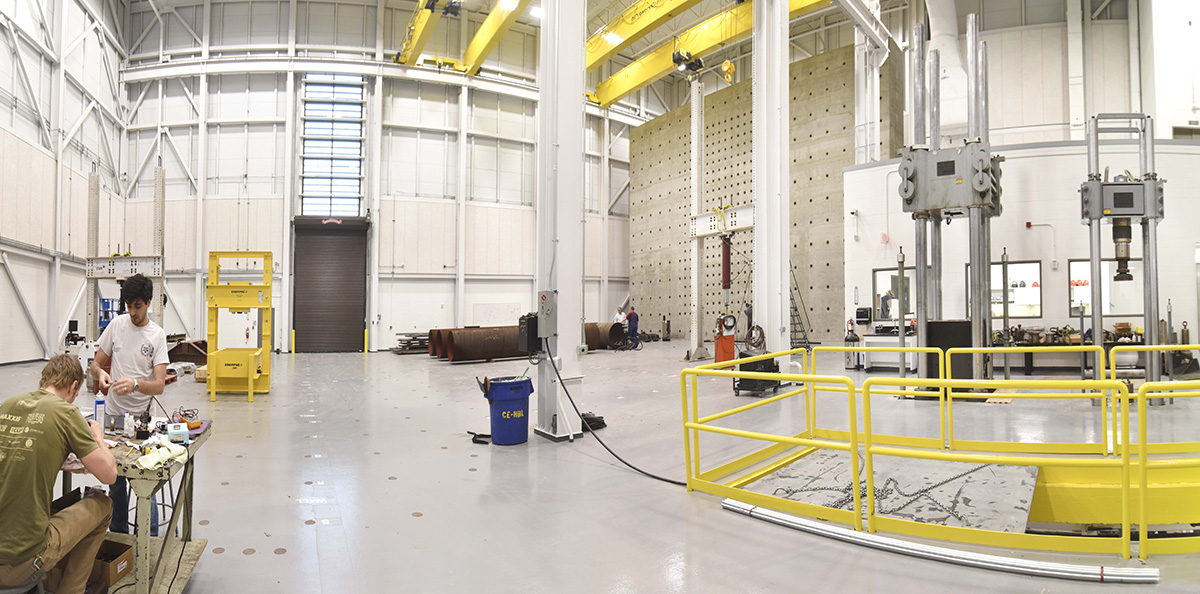Exact Evaluation: Discover the Power of Our Materials Test Lab
Wiki Article
Precision Testing of Materials for Stamina and Durability
Precision testing of materials for toughness and durability plays a vital duty in different markets, including production, construction, and design. This process involves subjecting different materials to rigorous evaluations to establish their capability to stand up to exterior forces and keep their stability over time.In the globe of materials screening, accuracy is critical. Engineers and researchers count on exact and dependable information to make educated decisions regarding product option, style optimization, and product performance. By making use of innovative screening strategies and modern devices, experts can analyze the strength and toughness of a variety of products, such as steels, porcelains, composites, and polymers.
This introduction will offer insights right into the value of precision screening, the sorts of products typically based on screening, the key criteria for strength evaluation, and the methods utilized for longevity assessment. It will certainly also highlight the applications and benefits of conducting accuracy testing in numerous sectors.
Relevance of Accuracy Screening
Precision testing is a crucial action in assessing the toughness and longevity of products, giving trusted and exact information for informed decision-making. The quality and performance of products play a critical duty in making certain the safety and security and longevity of frameworks and products when it comes to manufacturing and building and construction sectors. As a result, carrying out precision screening is of utmost value to determine whether the materials meet the required criteria and specifications.By subjecting materials to extensive testing treatments, manufacturers and engineers can evaluate their mechanical residential properties, such as tensile toughness, hardness, and effect resistance. This info permits them to ensure that the materials can endure applied pressures and environmental problems without failing or destruction in time. Additionally, precision screening aids determine any type of possible problems or weaknesses in the materials, making it possible for producers to make necessary enhancements or adjustments to improve performance and dependability.
Moreover, precision testing provides objective and measurable data that can be utilized to make and contrast different products notified decisions about their viability for certain applications. This info is especially beneficial when picking materials for important elements or structures where failure can have serious consequences.
Sorts Of Products Subjected to Examining
Numerous products undergo screening for toughness and sturdiness. This screening is important to make certain that the products can endure the demands of their desired applications and to establish their anticipated lifespan. The sorts of materials based on testing are varied and include metals, polymers, porcelains, composites, and building and construction materials.Metals, such as steel and light weight aluminum, are generally evaluated for their tensile toughness, hardness, and resistance to rust. materials test lab. These tests assist establish their viability for usage in structural applications, equipment, and numerous commercial processes

Ceramic products, such as porcelain and ceramic floor tiles, are evaluated for their compressive strength, warmth resistance, and resilience. These tests make certain that ceramics can withstand heats and severe environments, making them appropriate for applications in the construction, electric, and aerospace markets.
Composites, which are materials made from a mix of different parts, undergo numerous tests to analyze their mechanical homes, such as stiffness, toughness, and effect resistance. Composite products are widely utilized in markets such as aerospace, automotive, and sports tools production.
Building and construction materials, consisting of wood, concrete, and asphalt, go through testing to identify their load-bearing capability, durability, and resistance to weathering. These tests are vital in ensuring the safety and durability of roads, structures, and bridges.
Key Specifications for Toughness Assessment
One of the crucial criteria for check out here stamina assessment is the tensile strength, which determines a material's capability to resist pulling pressures without warping or damaging. One more essential specification is the compressive strength, which assesses a material's resistance to being or squashing squeezed with each other. By assessing these essential parameters, scientists and engineers can precisely analyze the strength and resilience of products, enabling them to make informed choices in various industries such as aerospace, auto, building, and production.

Techniques for Toughness Evaluation
Durability analysis techniques are crucial for examining the long-term efficiency and dependability of materials. These strategies are critical in identifying the capacity of products to hold up against numerous ecological problems and mechanical tensions over expanded durations of time.Another strategy is cyclic testing, which includes subjecting products to duplicated loading and dumping cycles. This assists examine the product's exhaustion resistance and its capacity to withstand repeated anxiety without failing. By assessing the stress-strain response of the material during cyclic testing, researchers can identify potential powerlessness and evaluate the material's toughness.
Furthermore, non-destructive screening strategies such as ultrasonic screening and infrared thermography can be used to analyze the inner honesty and detect any issues or damage in the product. These strategies supply important details regarding the material's longevity without creating any kind of damages to it.
Applications and Advantages of Precision Testing
Accuracy testing plays a crucial function in evaluating the strength and durability of materials, allowing researchers and engineers to acquire accurate and reliable data for evaluating their efficiency. The applications of precision screening are wide-ranging and can be located across various sectors, including aerospace, automobile, construction, and production.One of the vital benefits of accuracy testing is its capacity to determine potential weak points or problems in products. By subjecting materials to extensive and regulated testing, any kind of vulnerabilities or flaws can be identified before they bring about disastrous failures. This permits producers Discover More to make essential enhancements or modifications to boost the general top quality and toughness of their items.
Accuracy screening likewise assists in determining the optimum style and composition of materials. By testing different variants and arrangements, engineers can identify the most ideal materials for particular applications. This brings about improved performance, performance, and cost-effectiveness in different markets.
Moreover, precision testing supplies beneficial information for the development and renovation of products and manufacturing processes. materials test lab. It enables scientists to gain a deeper understanding of material behavior under different problems, bring about the development of new materials with enhanced toughness, toughness, and efficiency characteristics
Conclusion
In final thought, accuracy testing plays an essential duty in evaluating the strength and longevity of products. By subjecting various kinds of products to extensive screening, crucial parameters for toughness assessment can be determined.Precision screening is a vital action in assessing the toughness and toughness of materials, supplying trusted and accurate information for informed decision-making.Various products are subjected to testing for stamina and durability. The kinds of products subjected to testing are varied and consist of metals, polymers, ceramics, compounds, and construction materials.
By evaluating the stress-strain response have a peek at these guys of the material during cyclic testing, researchers can determine potential weak points and evaluate the material's longevity.
In conclusion, accuracy testing plays an essential function in examining the toughness and toughness of materials.
Report this wiki page